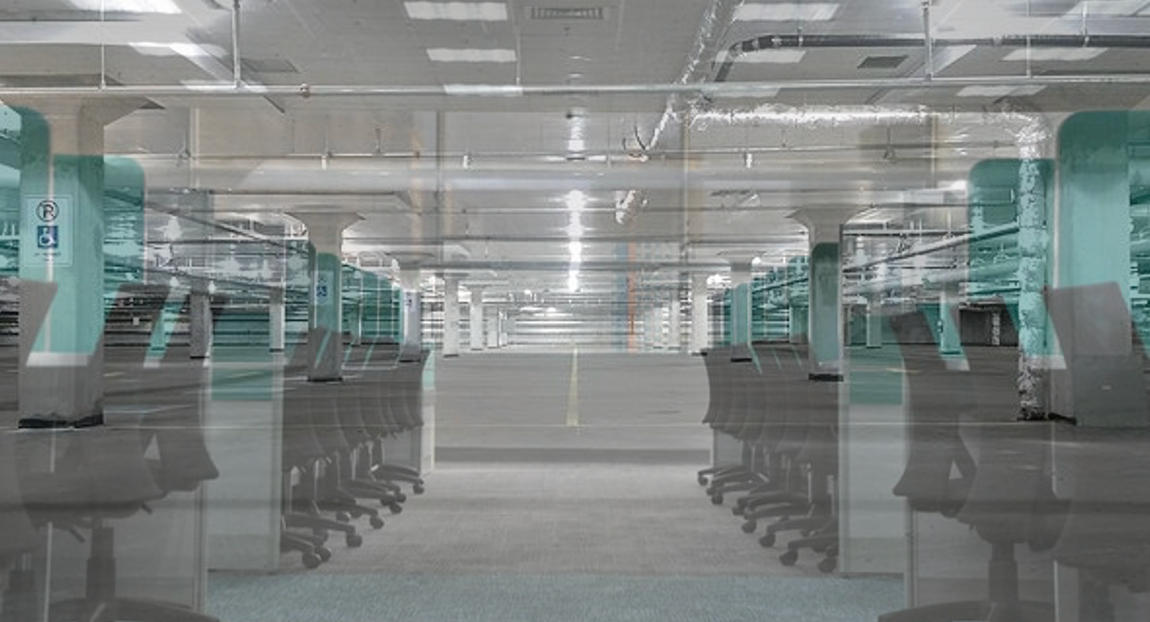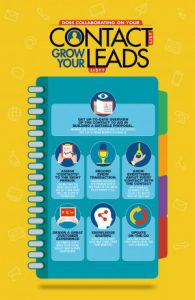Do we need an office? Should the office be “Our home @ work” or “Work from home”?
The world had come to standstill. It was surreal.
It was beginning to dawn on us that the shutdown was for the long haul. There was not going to be any quick reopening of our offices. And when we eventually would reopen… something will have changed. It would not go back to the way things were.
What would change? We were consumed by questions like would we need an ‘office’? What does an ‘office’ mean? If we did, what kind of an office? What resources other than office are important for teams to work? How would the type and need for these resources change in the new setup? How to keep the teams working effectively?
It was all a bit overwhelming. So, we turned to reading about what heads much bigger than ours were saying on this subject. Their thoughts.
Is an office really required? Quite of few of us from time to time worked from places away from the ‘office’ – from home, on the road, client locations, offices of our partner organizations. So, we were used to working ‘remote’. But that used to be for “some of the time”. This was going to be “all the time”.
Earlier, we all knew we would eventually meet each other in person, get in front of each other. Now we were going to be away on a longer-term basis. We would see each other only on a screen. On Webex, or Zoom, or GoToMeeting, or Microsoft Meeting among many others – take your pick.
So… What is an office anyway? What did we need an office for?
Did we need an office because we needed to exchange ‘stuff’ physically? Did we need the office for the infrastructure that the office provided – like internet, printers, phone systems, copiers?
Or, did we need an office to make sure that everyone was heads down… working hard? Was it to facilitate meetings and sharing of ideas? I like to think that we were doing our jobs without someone looking over our shoulder all the time.
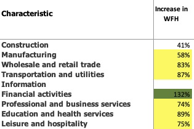
I was poking around internet for answers when I chanced upon the ‘American Time Use Survey’ from the US Bureau of Labor Statistics – the BLS-ATUS.
The “Employed persons working and time spent working on main job at home or workplace, by occupation and industry” report gives us a hint. Service industries that have less dependence on physical proximity between workers saw a larger increase in “Work from Home” or “Remote Work”.
Our work fell in the ‘less physical dependence’ category. That made us more suited to the ‘work from home’ model. And most of our infrastructure was in the cloud. Our servers. Our phone systems. The software that we use. There was no specialized equipment or facilities at the office that anyone needed to use.
So, what advantage did “work from office” really have? Disadvanatages?
The big advantage of working from an office was the ability for us to have impromptu conversations not really related to work, to gossip, to shoot the breeze, talk about the game last night, plan the next hike… stuff like that. We seem to have lost out on the social aspects of working.
On the other hand working from office had a big disadvantage – the commute, the time spent commuting. How much time are we talking about? Back to the ‘Time Utilization Survey’!
How much time was saved by not commuting? And how was this time saved being utilized?
Overall, people saved about 25% time by not commuting. Average commutes were about 1.5 hours before the pandemic. How was this time saved by not commuting used?
One of the biggest increases in time utilization was in “Leisure and Sports activities” and “Caring for Others” – about an hour every day. And
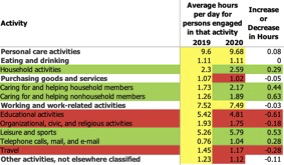
one of the biggest reductions? In educational activities, and in travel – about an hour also.
So, the time saved in travel and educational activities was used for personal activities like Sports, leisure, caring for others.
The biggest takeaway from me was that the time spent on work remained steady at seven and a half hours! You could even say it went marginally up if you add time spent on emails and phone calls.
Did we really need an “office”? Maybe.
Almost everyone, i.e. everyone other than real estate folks agree that not only is office space going to change, it is going to evolve in a different way.
What I seem to be hearing not only from my team but also from the people I talk to, and from what I am reading is that offices are not so much for ‘work’ as it is for things ‘other than work’. Derek Thompson summarizes it well in this article in the Atlantic.
In the offices that I “grew up” in – ‘professionally speaking’, we had our own assigned workspaces. The quality of this workspace depended on one’s place on the organizational totem pole. The lower down one was, the smaller the workspace, in a busier pace, and farther from any window or from sunlight :). But the point is, we had a workspace of our own – our “Home @ Work”.
This is likely to change.
From what I have been reading and hearing two things seem to emerge on the reason to have an office. One, we do need to get together occasionally. And… two, we need to get together primarily for interacting with each other on matters “other than work”.
As I thought about this it seemed to pointto a shared social space model. Not unlike a restaurant. Where you have tables – you go there, sit for a bit, interact with the folks you are meeting and then go on with your life, with whatever you need to be doing. Or a club. A little quieter. A little discreet. That also gives you the option to hold on to your space for a slightly longer time.
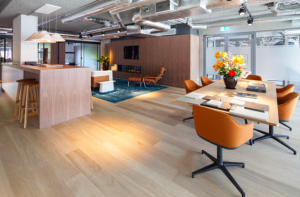 There are organizations doing something like that. However, the physical office space is just a part of this equation. The question remains – how to facilitate the “actual work” that people are supposed to be working on? I will talk about it in my next blog.
There are organizations doing something like that. However, the physical office space is just a part of this equation. The question remains – how to facilitate the “actual work” that people are supposed to be working on? I will talk about it in my next blog.

